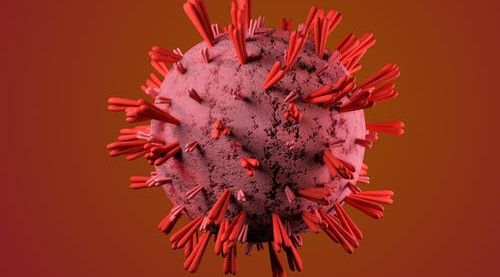Abu Dhabi is introducing withing few days the use of Regen-Cov, one of the newest Covid-19 drugs available in the market. People, including children 12 years of age and above can be given new antiviral treatment if exposed to Covid-19.
This treatment is the latest tool to fight coronavirus and its new strains. UAE health authorities are among the first, along with the US, to have approved the new treatment and received the drug, that is administered via injection.
It is aimed at people with health issues but can also be given to anyone who develop moderate to severe symptoms. According to a leading health official, it should be available by next week.
Dr Asma Ibrahim Al Mannaei, executive director of Research and Innovation Center in Abu Dhabi’s Department of Health, informed that the new cocktail drug would be in stock at Abu Dhabi Health Services Company (Seha) clinics within days. “We have the medication already in place and is it currently being distributed to healthcare facilities. I mean, we are talking about a matter of days,” she said.
Regen-Cov is the latest in new treatment for the coronavirus. It is the only medication that can be given to people even before they contract the virus as a preventive measure.
A study by Roche partner Regeneron said the cocktail evidently reduce the risk of getting infected with Covid-19 by 82 per cent for up to eight months. It is a new generation of therapies that "jump-start" the body’s immune system to evade the virus. The study was in collaboration between the National Institute of Allergy and Infectious Diseases, and included people who lived in a household with a Covid-19 patient who had been diagnosed within the last four days.
Early trial results show that the treatment can potentially reduce the chances of infection by 81 per cent within the first month. This was reported this month by Bloomberg. New data shows the protection is maintained, with reduction of 82 per cent in symptomatic infections for at least eight months after administration of the drug.
During the study, no participant of the treatment group was admitted to hospital with Covid-19, as compared with six in the placebo group. No deaths from Covid-19 infection occurred in either group. Regen-Cov will be allowed as a preventive therapy for people who haven’t received both the vaccine doses, who are immunocompromised or who have been exposed to the coronavirus.
“It is the first drug that can be used as a treatment and also as a prophylaxis after exposure to a positive case,” Dr Al Mannaei said. “It can also be used for people who have tested positive for the virus or who have come into contact with a positive case to prevent further development of the infection.” She added that currently the healthcare providers are being trained to administer the drug.
Regen-Cov can be administered through an intravenous or intramuscular injection, with physician determining the eligibility and dosage.
Dr Mannaei was optimistic about the new drug. “This is an excellent addition to the portfolio of treatments that we have in Abu Dhabi,” she said.
“The best way for managing a communicable diseases, specifically Covid-19, is to prevent it from occurring from the start. This can only be done by vaccination, maintaining social distancing and adopting personal protection measures to avoid and break the infection cycle across the community,” she said.
“This is a treatment, not a replacement for vaccination. It is something that can be done as a secondary level of management of the disease. But the primary and most important [factor] is vaccination,” she said.
It will soon be offered in Abu Dhabi for free to eligible individuals. "It will be available for adults and children above the age of 12. There will be certain criterions, for example, co-morbidities, vulnerability and the severity of the case," she said. "It will be very much dependent on the decision of the treating physician."
 AR
AR UR
UR
